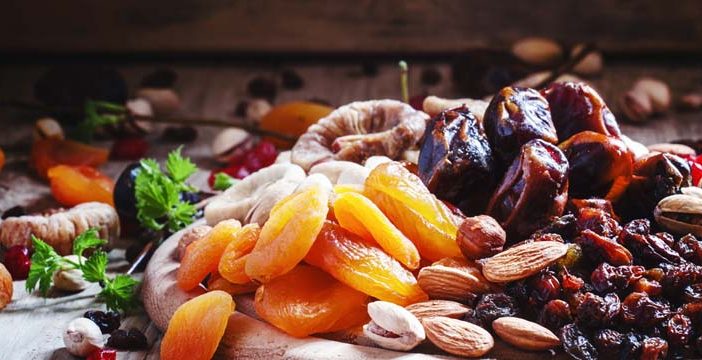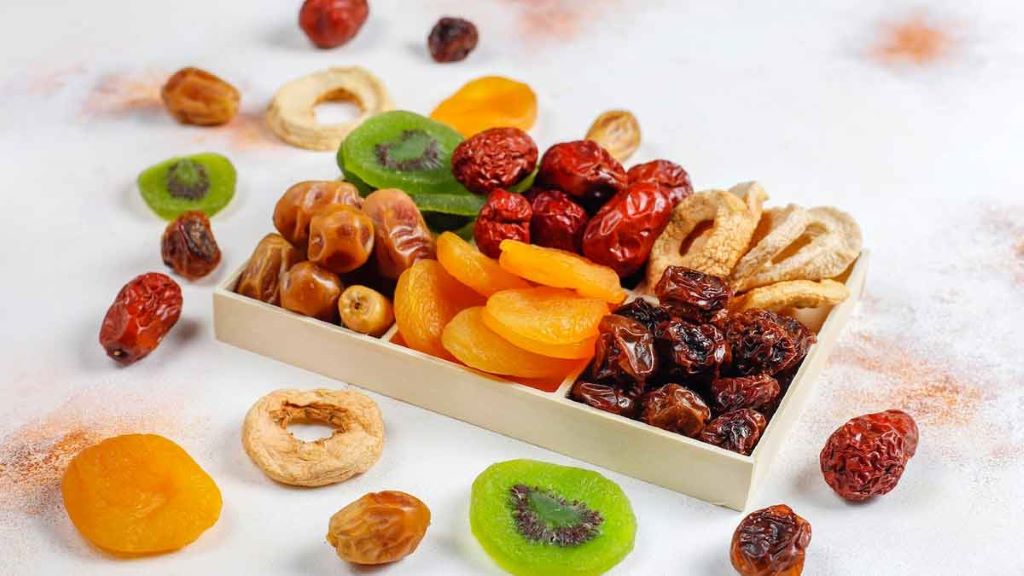
18 Apr Dried Fruit and Diabetes: Understanding the Sweet (and Sometimes Sour) Side
Dried fruit, with its chewy texture and concentrated sweetness, might seem like a forbidden treat for people with diabetes. However, the reality is more nuanced. Dried fruits can fit into a healthy diabetic diet, but it’s all about understanding portion sizes, sugar content, and smart pairing strategies.
The Benefits of Dried Fruit
- Nutritious Powerhouse: Dried fruits pack a punch of vitamins, minerals, and fiber. They are a good source of antioxidants that can help protect against disease.
- Sweetness to Satisfy Cravings: The natural sweetness of dried fruit can be a satisfying alternative to sugary snacks for those with diabetes who are trying to curb cravings.
- Convenient and Portable: Dried fruit is easy to take with you on the go, making it a convenient snack option.
The Concerns with Dried Fruit
- Concentrated Sugar: The drying process removes water from fruit, concentrating its natural sugars. This means a serving of dried fruit has more sugar and carbohydrates than the same amount of fresh fruit.
- Easy to Overeat: The small size of dried fruit can make it easy to overeat, leading to blood sugar spikes.
- Added Sugars: Some dried fruits have extra sugar added to them, increasing their overall sugar content.

Choosing Wisely: Tips for Diabetics
- Check the Label: Look for dried fruits that are unsweetened or have no added sugar. Opt for fruits lower in natural sugars, like prunes and apricots.
- Watch Your Portions: Stick to recommended serving sizes. A small handful of dried fruit (about a quarter cup) is often a good place to start.
- Pair It Up: Don’t eat dried fruit alone. Combine it with protein sources like nuts or yogurt and healthy fats like avocado to slow down sugar absorption and enhance fullness.
- Hydrate: Always drink plenty of water with dried fruit. This helps with digestion and can also help mitigate any blood sugar spikes.
Read More: Best diet tips to lose weight and improve health
The Best Dried Fruits for Diabetes
Some dried fruits are naturally lower in sugar and have a lower glycemic index (GI), meaning they are less likely to cause sharp blood sugar spikes. Here are a few good options:
- Prunes
- Apricots
- Dates
- Figs
- Apples
Related: Is Canary Seed Good for Humans?
The Bottom Line
Dried fruit can be a part of a balanced diet for people with diabetes, but moderation and careful planning are key. Prioritize whole, fresh fruits whenever possible, and treat dried fruit as a convenient and occasional way to add nutritious sweetness to your diet.
Remember: If you have diabetes, it’s always best to consult with your doctor or a registered dietitian to discuss how to best incorporate dried fruits into your meal plan.


Sorry, the comment form is closed at this time.